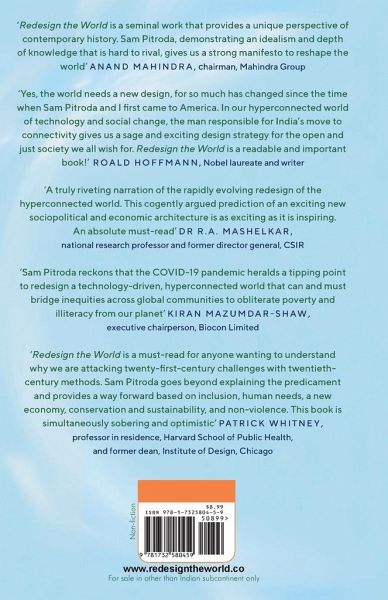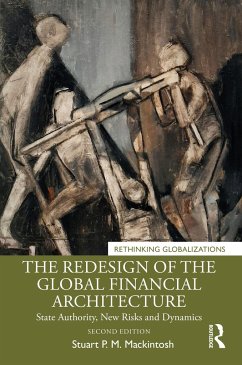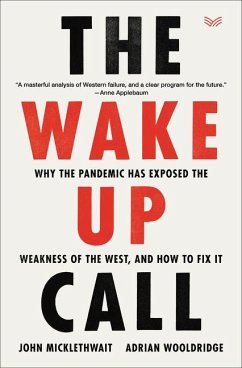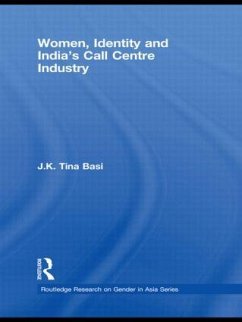
Redesign the World - A Global Call to Action

PAYBACK Punkte
6 °P sammeln!
The world was last designed seventy-five years ago, about the same time that Sam Pitroda was born. This design has outlived its utility. Hyperconnectivity and the COVID-19 pandemic offer a unique opportunity to redesign the world to take humanity to the next level. Redesigning the world is not about looking at it from the point of view of liberal or conservative; left or right; capitalism or socialism; public or private; democracy, dictatorship or monarchy; open or closed systems; rich or poor; urban or rural; east or west; white, brown, black or yellow. This proposed redesign of the world has...
The world was last designed seventy-five years ago, about the same time that Sam Pitroda was born. This design has outlived its utility. Hyperconnectivity and the COVID-19 pandemic offer a unique opportunity to redesign the world to take humanity to the next level. Redesigning the world is not about looking at it from the point of view of liberal or conservative; left or right; capitalism or socialism; public or private; democracy, dictatorship or monarchy; open or closed systems; rich or poor; urban or rural; east or west; white, brown, black or yellow. This proposed redesign of the world has the planet and its people at the centre; it is built on the foundations of sustainability, inclusion, equality, equity and justice so that everyone on earth can enjoy peace and prosperity. It is not an idealist or utopian vision, but one with humanity at its core.This book is about reshaping the world to meet the future challenges of our planet and our people. The three dimensions In the third vision, he calls for nations "networking, ideas, interests, resources and talent, all designed to save our planet and uplift all our people. This vision will be based on a novel organizational architecture focussed on global consultations, collaboration, co-operation and enhanced communication". He lays out what he sees as the three dimensions of the information age - connectivity, content and context. There is also reference to three unique dimensions of information technology - democratisation, decentralisation and demonetisation. Then there are five new pillars for the world's redesign: inclusion, human needs, new economy, sustainability/ conservation and non-violence. There are multiple valid points - such as the need to discard the use of over-simplistic and inadequate tools such as GDP to measure economic growth and well-being. The book stresses on the need to keep environmental concerns central to any new policy making pointing out that the planet "can survive without people, but people cannot survive without a healthy planet. Our priority during the world's redesign has to be to improve our planet's health and make it more clean, diverse, prosperous and sustainable, a place where each plant and form of life can flourish and live to its fullest potential." Perhaps the most heartfelt section of the book is one at the end entitled: Who Am I to Write This Book? in which he delves into his motives for penning this book. The book offers a much-needed manifesto that can guide the world to better, healthier, sustainable human life. However, in a bitterly divided world with governments turning towards populism, nationalism, and brutality to crush change, "political will at the highest level" - one the crucial elements that would make the manifesto possible seems to be unachievable at the moment. He urges us to recognise how Covid has underscored how interconnected we are - but few seem to be able to recognise this - not the least India, currently facing unprecedented challenges to save lives. As a manifesto, a wish list for the next 75 years, this is a wonderful, even inspiring read. The challenge is to make the powers that be accept this vision.













